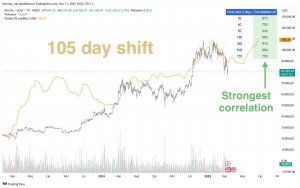BOOK REVIEW: ‘Tearing at the Seams’ by Eric Robert Morse

In this age of blistering media commentary and ruthless Twitter onslaughts, it is refreshing to know that there is still room for a thinker like Eric Robert Morse.
These days, it would seem, arguments are dominated by fire-breathing ideologues with no care for civility and no appreciation for dialectic. And this is true for both sides of the debate. Each side goading the other on for an ever-intensifying battle that can only end in chaos.

Amazon: Paperback, Kindle
Though it is clear that Morse argues from one side of the debate, he prioritizes civility; though he is unequivocal, he adheres to the rules of dialectic. The result is a treasure of argumentation. Morse identifies as a classical liberal, and the reader will recognize the tradition of Locke, Montesquieu, Adam Smith, and Tocqueville. But readers from both sides of the debate should appreciate his insights-on-every-page and the systematic logic that carries his essays.
Even modern liberals and supporters of BLM will appreciate the way Morse shine light on the modern diversity problem, which has largely become the very opposite of what legends like Martin Luther King promoted. Morse writes, “If an HR manager says that we need a certain number of employees with a certain skin color or gender, he is saying that their skin color or gender must determine who they are to some extent, and thus dictate what they provide to the company. Isn’t that exactly what the diversity and inclusion initiatives are trying to fight against?”
Or consider his universal appeal for better debate which draws from Socrates, Jordan Peterson, Andrew Lang, and Charlie Munger. As Morse writes, “If we are to improve the quality of discussion and, dare I say, disagreement, we must replace the Straw Man with his noble cousin, the Steel Man. Instead of repeating your opponent’s argument to make it sound flimsy and silly, make it sound bold and powerful. Try to make it better than your opponent made it, and then try to defeat it. Only then will you know that you are on the side of truth.”
Morse is the kind of universal thinker that former ages could boast aplenty. Now, in our hyper-specialized age, there is little appreciation for one who can talk Behavioral Economics, allude to Greek Mythology, and denigrate William of Ockham in the same pages. I, for one, am glad to see at least one out there.







